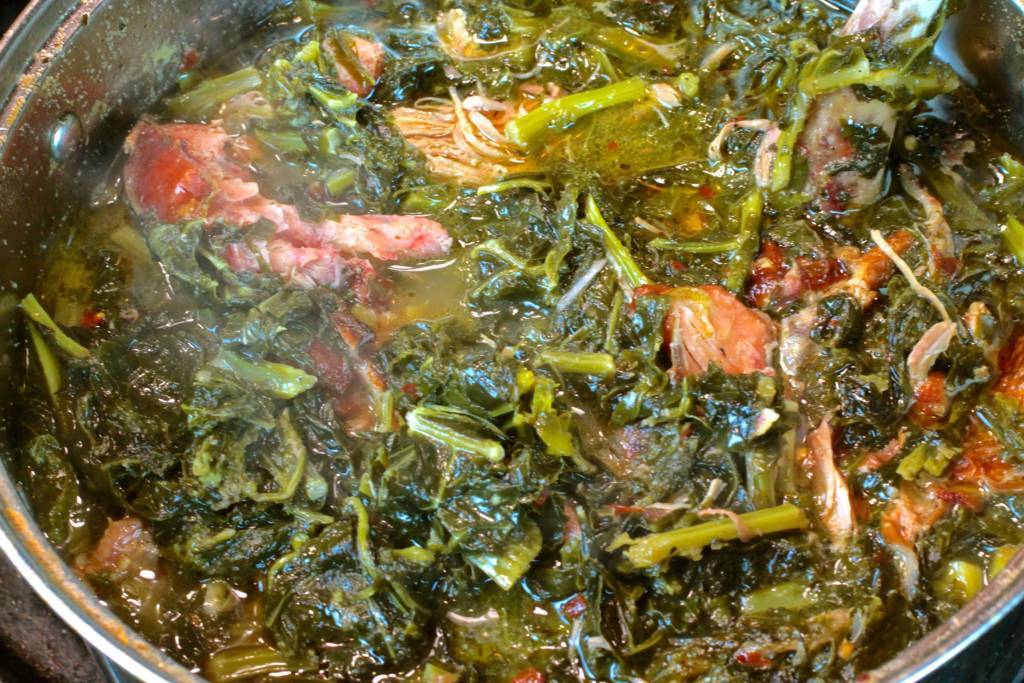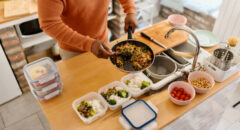
Think twice before warming up your next late-night snack. Some Foods you should never put in the microwave!!
With a microwave oven, you can heat up frozen dinners or leftovers in minutes. Before understanding why certain foods shouldn’t be put in the microwave, it’s important to know how it works.
Its name comes from the electromagnetic microwaves generated inside the oven. These waves of energy bounce off the microwave oven’s walls, eventually moving through the food and heating it up. However, when these waves encounter some foods, it can lead to a mess, an explosion, or even damage your health — there are certain foods that you should never microwave.
Leafy Greens
Celery, kale, or spinach and even collard greens are great vegetables. But if you plan to reheat them, use a conventional oven rather than a microwave. When blasted in the microwave, naturally occurring nitrates (which are very good for you on their own) may convert to nitrosamines, which can be carcinogenic (cancer causings), studies show.
The same holds true for reheating nitrate-rich beets and turnips! Good thing they’re just as delicious cold.
Chicken
The most important thing to realize about microwaves is that their heat does not always kill bacteria, because microwaves heat from the outside in instead of the inside out. As such, certain bacteria-prone foods will have higher risk of causing sickness when these bacterial cells survive. Bearing this in mind, you can see why chicken, which is at risk of salmonella contamination, could be a dangerous food to microwave.
Before eating chicken, you have to cook it thoroughly to eliminate all present bacteria. Since microwaves don’t fully or evenly cook all parts of the meat, you’re more likely to be left with surviving bacteria, such as salmonella. In one study, out of 30 participants who reheated raw meat, all 10 who used a microwave became ill, whereas the 20 who used a skillet were fine. This goes to show how much bacteria can survive in meat when microwaved, compared to other cooking methods.
Frozen Meat
We’ve all been there. You forgot to thaw the meat that’s in the freezer out for dinner, and resort to defrosting it in the microwave for a quick fix. It’s pretty easy to defrost frozen chicken breast in the microwave, and faster than thawing it in the fridge. However, microwaving frozen meats can allow bacteria to grow.
Microwave ovens distribute heat unevenly, so some areas can wind up overcooked while others stay frozen, creating a breeding ground for food-borne diseases in the areas that remain cold. The best way to avoid this is by simply putting the meat you’d like to thaw in the fridge overnight, the hardest part is remembering to do so.
Processed Meats
As African Americans, we are at a high risk of heart disease. Microwaving processed meats could increase that risk. Not only do they contain many chemicals and preservatives that get worse when microwaved, but heating up processed meats can produce cholesterol oxidation products.
COPs are proven to be more harmful to the arteries than cholesterol itself and are linked to coronary heart disease.
So, heat meats like hot dogs, bacon, and lunch meat on the stove. Doing so could save your heart, and it probably tastes better anyway.
Baby Formula or Breast Milk
Pumping and freezing breast milk to save for later is a safe and convenient way to save time—unless you plan on using the microwave to reheat it. Like the risk with frozen meats, breast milk or formula heats unevenly in the microwave.
This can create hot spots that may scald your baby’s sensitive mouth. Additionally, this method is found to kill some of the immune-boosting proteins found in breast milk.
According to the Food and Drug Administration, the best way to heat baby formula and breast milk is by placing the bottle in hot water until warm and testing it on the back of your hand.
Plastic Containers
This item is not necessarily food, but when combined with food, it can harm you, nonetheless. Everyone has leftovers stored in Ziplock containers in their fridge (or Country Crock containers sometimes).
But if you’re thinking of reheating that leftover barbecue chicken in the microwave, think again. Most plastic containers contain estrogen-like chemicals (such as BPA) that can seep into your food when microwaved. These chemicals have been linked to reproductive, immunity, and neurological problems.
Even containers labeled “BPA-Free” aren’t completely safe, as they are shown to release other estrogen-like chemicals. The best solution is to move your food from plastic containers to plates before reheating it.









